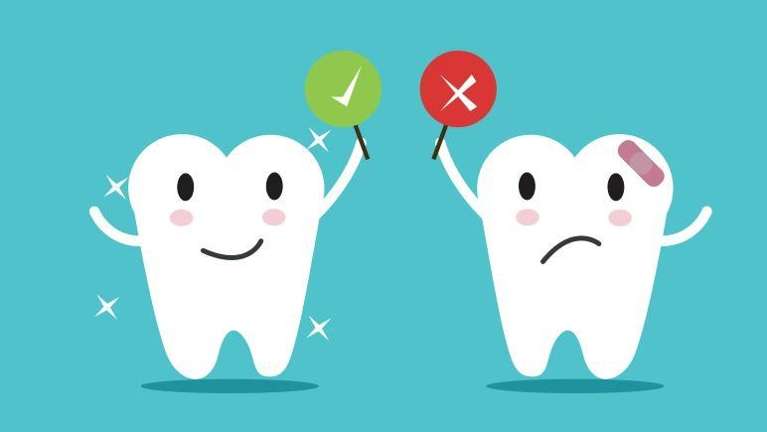
The Acidic Truth: Understanding Tooth Erosion
Coca-cola, lemons, chlorine, and vomit – what do all these things have in common? Acid. Let’s talk about what this has to do with your oral health.
When acid sits in your mouth for a long period of time, a dental issue that commonly arises is tooth erosion. In early stages, this is when the protective outer layer of the tooth known as enamel wears away, generally affecting a group of teeth. However, continuous acid attacks cause the teeth’s inner layers known as the dentine and the pulp to be revealed, exposing the nerves and blood vessels to the external environment. As a result, it compromises the tooth's insulation against extreme temperatures, bacteria, and chemicals.
Unfortunately, although enamel is notorious for being the hardest tissue in the body, it cannot regenerate, and the damage is irreversible. Not even those fancy toothpastes advertised can help! The tooth is permanently weakened and more susceptible to additional damage.
Where does this acid come from?
- Diet: Foods and beverages containing high levels of acid (pH <5.5) causes weakening of the enamel, making the tooth more susceptible to erosion and wear. Some examples include:
|
Food/beverage |
pH value |
|---|---|
|
Coke |
2.7 |
|
Lemons |
1.8-2.4 |
|
Orange Juice |
3.4 |
|
Sports Drinks |
3.3 |
|
Wine |
2.3-3.8 |
- Medical conditions: Individuals with reflux disease (GERD) or bulimina may experience acid regurgitation which is when stomach acid travels up the throat into your mouth. As a result, the acid comes in contact with the teeth frequently and gradually wears away the enamel, thus erosion typically on the teeth’s inner surfaces.
- Lifestyle: Certain activities can cause excessive contact of acid on your teeth such as swimming. Swimmers tend to show signs of tooth erosion due to chlorine and other chemicals in the pool.
Some individuals are naturally more susceptible to tooth erosion as genetically their teeth are softer than others. Behaviours and factors that can exacerbate this are dry mouth and tooth grinding. A dry mouth and lack of saliva limits the acid neutralising benefits and natural repair of early stages of erosion. Furthermore, tooth grinding which exerts excessive and repetitive forces further wears down the enamel, typically leaving a smooth surface.
What are the effects of tooth erosion?
Although the severity and extent of enamel loss determines the effects, common problems that arise include:
- Tooth sensitivity: As enamel wears away, you may become more sensitive to hot or cold foods, beverages, and sugary treats, as these substances can penetrate the openings in the enamel and reach the sensitive nerves within the teeth.
- Cracked or chipped teeth: With enamel being vital to the structural integrity of the tooth, weakening or erosion of this component increases the risk for fractures, cracks, and chips.
- Increased risk of tooth decay: Thinning of the protective outer layer increases the tooth’s susceptibility as decay can travel quicker and into the dentine layer which demineralises even faster.
- Discolouration and staining: You may notice the appearance of the tooth to be more yellow when dentine is more exposed.
How do I prevent tooth erosion?
The acidic truth is that erosion can be prevented. To minimise the frequency and effects of acid attack on the teeth, ensure you:
- Avoid brushing after enamel is softened from acidic consumption of food and drinks or after a vomiting or reflux episode. Wait at least 30 minutes after before brushing.
- Limit indulgence in acidic food and beverages overall to reduce frequency of attacks. When consuming, you can use a straw to minimise direct contact and rinse your mouth with water afterwards.
- Maintain good oral hygiene at home using soft toothbrushes and fluoridated toothpaste to strengthen the enamel. Using a soft-bristled toothbrush and less abrasive toothpaste, avoid pressing the toothbrush too hard on your tooth.
- Discuss and control your medical conditions with your general practitioner.
Finally, schedule regular check-ups with your dentist or hygienist to keep an eye on your teeth today!